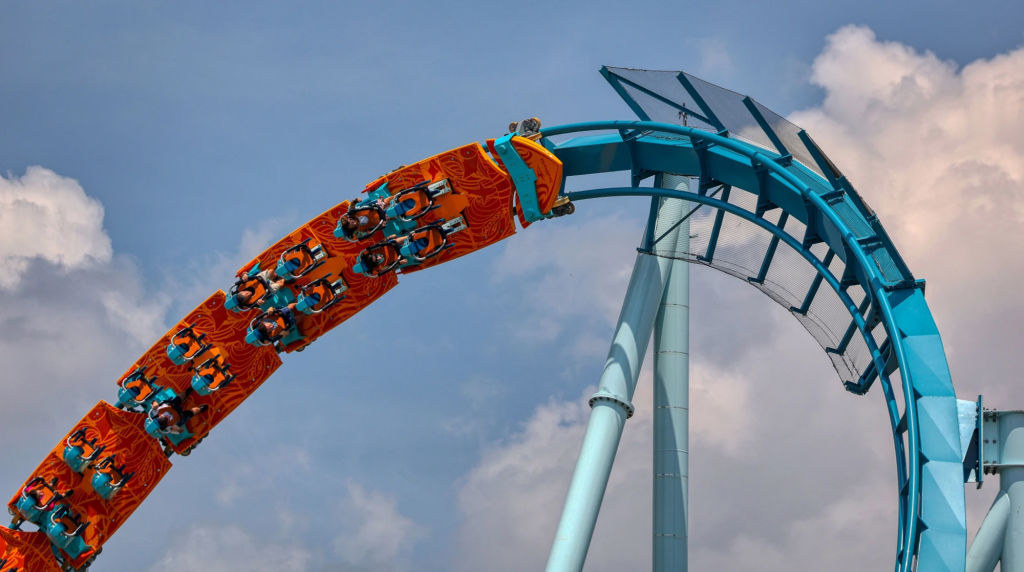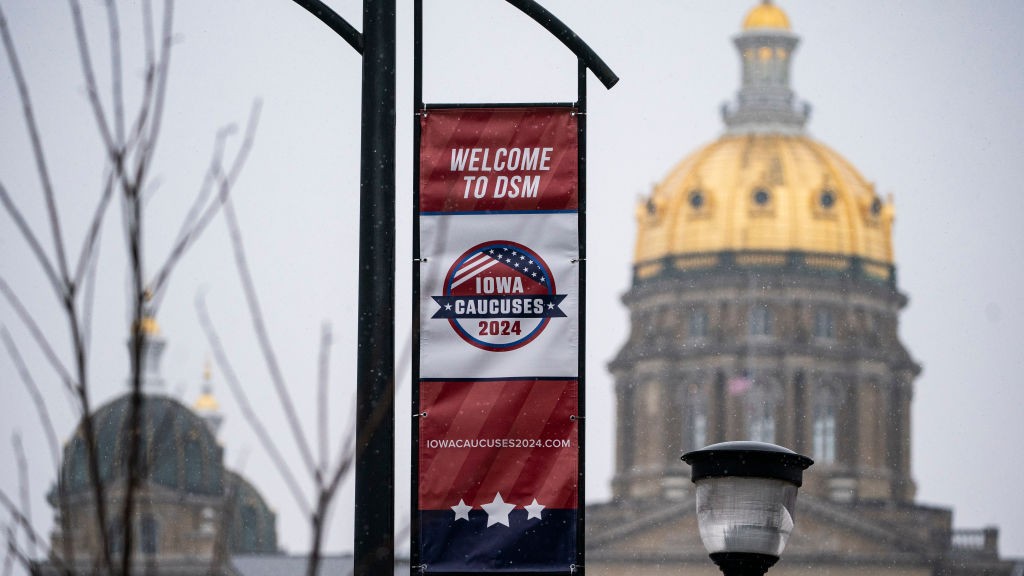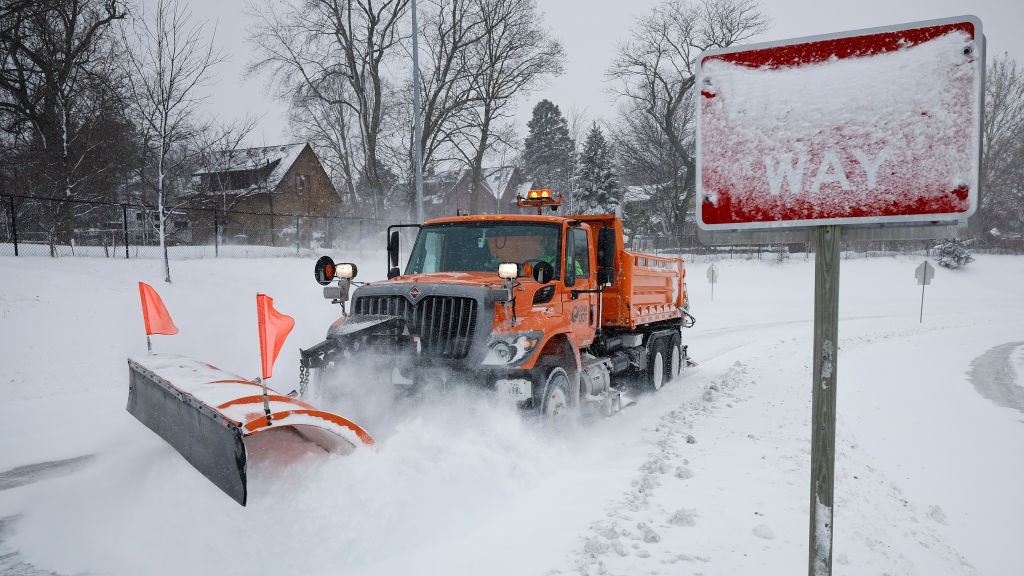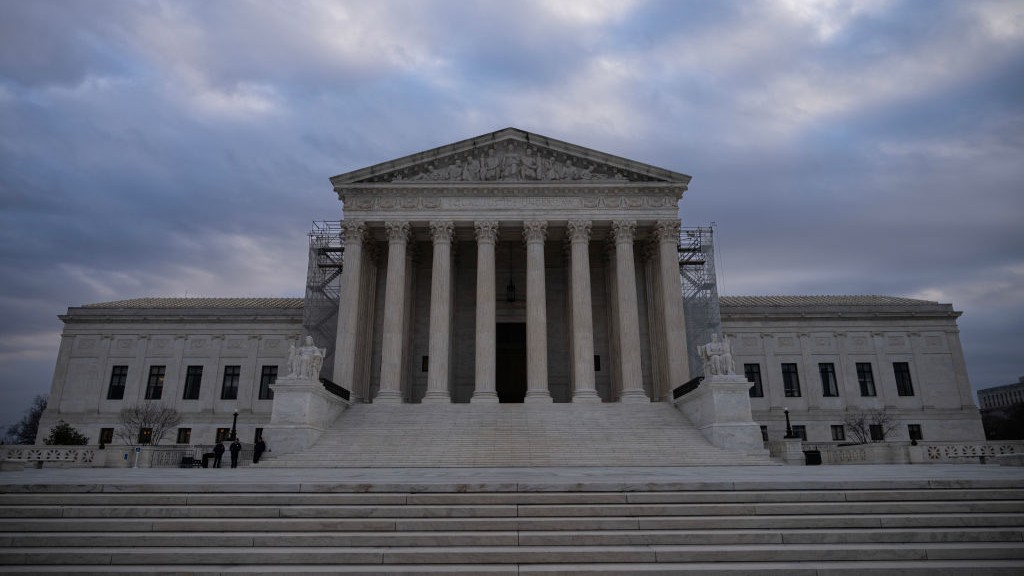Is it safe to ride a roller coaster?
A pair of startling events have shined a light on amusement park safety


A free daily email with the biggest news stories of the day – and the best features from TheWeek.com
You are now subscribed
Your newsletter sign-up was successful
A pair of recent incidents have raised concerns about an amusement park staple: roller coasters. The first occurred at a park in North Carolina, where a roller coaster was shut down after a crack in one of the support pillars was discovered. The other incident was in Sweden, where one person was killed and nine others injured following a partial roller coaster derailment that sent riders plummeting to the ground.
While roller coasters are ubiquitous at amusement parks across the world, these events have called into question just how safe they really are. In the United States, there is no federal regulation around roller coaster safety, and state-specific regulations only began in 1981, CNBC noted.
Despite this, industry insiders maintain that roller coasters are very safe, and "safety is at the forefront of everything we do," Jakob Wahl, president and CEO of the International Association of Amusement Parks and Attractions (IAAPA), told USA Today. He added that amusement parks "have very, very detailed safety protocols." But is this actually the case? Are roller coasters really as safe as the industry claims? Or are roller coasters more dangerous than parkgoers have been led to believe?
The Week
Escape your echo chamber. Get the facts behind the news, plus analysis from multiple perspectives.

Sign up for The Week's Free Newsletters
From our morning news briefing to a weekly Good News Newsletter, get the best of The Week delivered directly to your inbox.
From our morning news briefing to a weekly Good News Newsletter, get the best of The Week delivered directly to your inbox.
How dangerous is a roller coaster?
While these two alarming events have made international headlines, experts say the chances of being injured on a roller coaster are very slim. In North America alone, "More than 385 million guests safely [enjoy] in excess of 1.7 billion rides" every year, and "the chance of being seriously injured on a fixed-site ride at a U.S. amusement park is one in 15.5 million rides taken," IAAPA data reported. The association also estimates that the chances of being killed on a roller coaster are just one in 170 million.
An IAAPA injury survey from 2021 found 1,224 ride-related injuries at U.S. and Canadian facilities, which averages to just 0.9 injuries per every one million riders. Of these injuries, 383, or 31%, were directly related to roller coasters.
So in general, it seems that industry insiders are correct: The odds of being injured on a roller coaster are fairly low. However, since these are just estimates, the actual number of incidents could be much higher due to a lack of federal data gathering in the U.S. IAAPA data also shows that "the majority of serious injuries occurred on either family and adult rides or roller coasters" as opposed to other types of rides. The injury rates on roller coasters were also the highest compared to other rides, the IAAPA reported, with the percentage rate in 2021 averaging "0.7 for family and adult rides, 0.9 for children's rides, and 1.4 for roller coasters."
What types of regulations are in place?
The answer differs depending on the area. The most recent regulations in Europe "represent the 'state of the art' on amusement ride safety in Europe and continues its...role as one of the key global standards for ensuring amusement ride safety," according to an IAAPA fact sheet. These standards were helmed by people "from all areas of the amusement and leisure industry," IAAPA said, including "ride manufacturers, inspection bodies and operators, representatives of consumers, safety authorities and regulators."
A free daily email with the biggest news stories of the day – and the best features from TheWeek.com
These items are defined by IAAPA as "the best practices developed over the last 13 years, representing another significant step toward global harmonization" of ride safety. As a result, these standards have also made their way outside of Europe, and are currently "the amusement rides safety reference in more than 40 countries all over the world."
In the U.S., regulations are much less uniform, as the federal government has decided that "states are best equipped to regulate the amusement park industry," the IAAPA said. As a result, amusement parks "report incidents to state and local governments and partner with government officials and inspectors to ensure the safety of their guests."
Should additional regulations be implemented?
In the United States, some experts have pointed to a lack of federal regulations as a potential problem. Since "no two states have the same regulation," amusement park consultant and inspector Ken Martin told NBC News, "There is no method of gathering information on incidents or injuries that exists nationwide. Some states do it, some states don't — and the majority don't."
Martin told the outlet that while roller coasters are mostly safe, uniform regulations could decrease the number of onboard accidents. "We've got to do a better job," Martin said, saying that roller coaster safety can't be maintained "with a patchwork of regulations. We have to be singing from the same song, the same verse, the same beat."
Justin Klawans has worked as a staff writer at The Week since 2022. He began his career covering local news before joining Newsweek as a breaking news reporter, where he wrote about politics, national and global affairs, business, crime, sports, film, television and other news. Justin has also freelanced for outlets including Collider and United Press International.
-
 ‘The forces he united still shape the Democratic Party’
‘The forces he united still shape the Democratic Party’Instant Opinion Opinion, comment and editorials of the day
-
 The year’s ‘it’ vegetable is a versatile, economical wonder
The year’s ‘it’ vegetable is a versatile, economical wonderthe week recommends How to think about thinking about cabbage
-
 Moltbook: The AI-only social network
Moltbook: The AI-only social networkFeature Bots interact on Moltbook like humans use Reddit
-
 10 things you need to know today: January 21, 2024
10 things you need to know today: January 21, 2024Daily Briefing Palestinian death toll reportedly passes 25,000, top Biden adviser to travel to Egypt and Qatar for hostage talks, and more
-
 10 things you need to know today: January 20, 2024
10 things you need to know today: January 20, 2024Daily Briefing Grand jury reportedly convened to investigate Uvalde shooting response, families protest outside Netanyahu's house as pressure mounts for hostage deal, and more
-
 10 things you need to know today: January 15, 2024
10 things you need to know today: January 15, 2024Daily Briefing Freezing Iowa caucuses to mark first voting of 2024 election, subzero temperatures place stranglehold on much of US, and more
-
 10 things you need to know today: January 14, 2024
10 things you need to know today: January 14, 2024Daily Briefing Israel and Hamas mark 100th day of war, GOP candidates campaign on final day before Iowa caucuses, and more
-
 10 things you need to know today: January 13, 2024
10 things you need to know today: January 13, 2024Daily Briefing Winter storm blankets large swath of northern United States, more than 30 Palestinians killed during overnight airstrike in Gaza, and more
-
 10 things you need to know today: January 7, 2024
10 things you need to know today: January 7, 2024Daily Briefing White House reportedly left unaware of defense secretary’s hospitalization, Biden to deliver State of the Union address on March 7, and more
-
 10 things you need to know today: January 6, 2024
10 things you need to know today: January 6, 2024Daily Briefing Supreme Court to rule on Trump being kept off 2024 presidential ballots, Hezbollah fires rockets toward Israel following Hamas leader’s death, and more
-
 10 things you need to know today: December 17, 2023
10 things you need to know today: December 17, 2023Daily Briefing Putin rejects Biden's claim that Russia will attack NATO, Israel ramps up bombardments of Gaza overnight, and more
